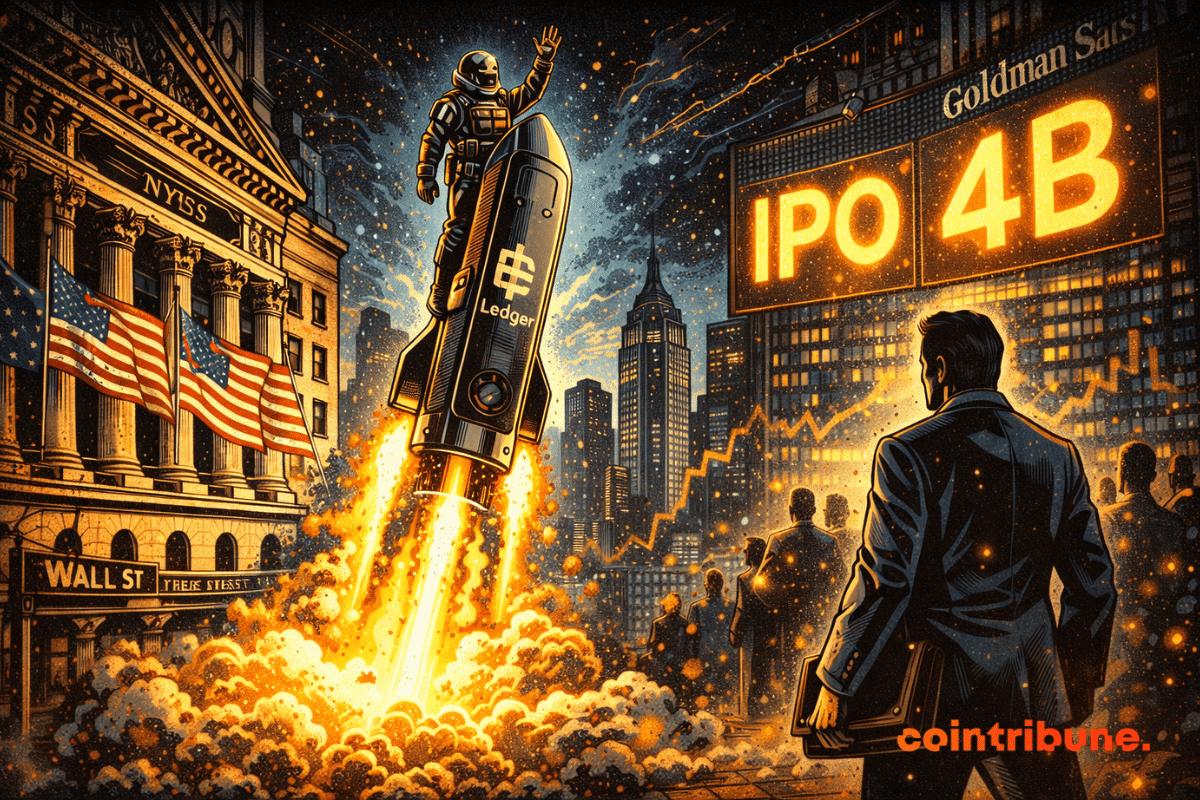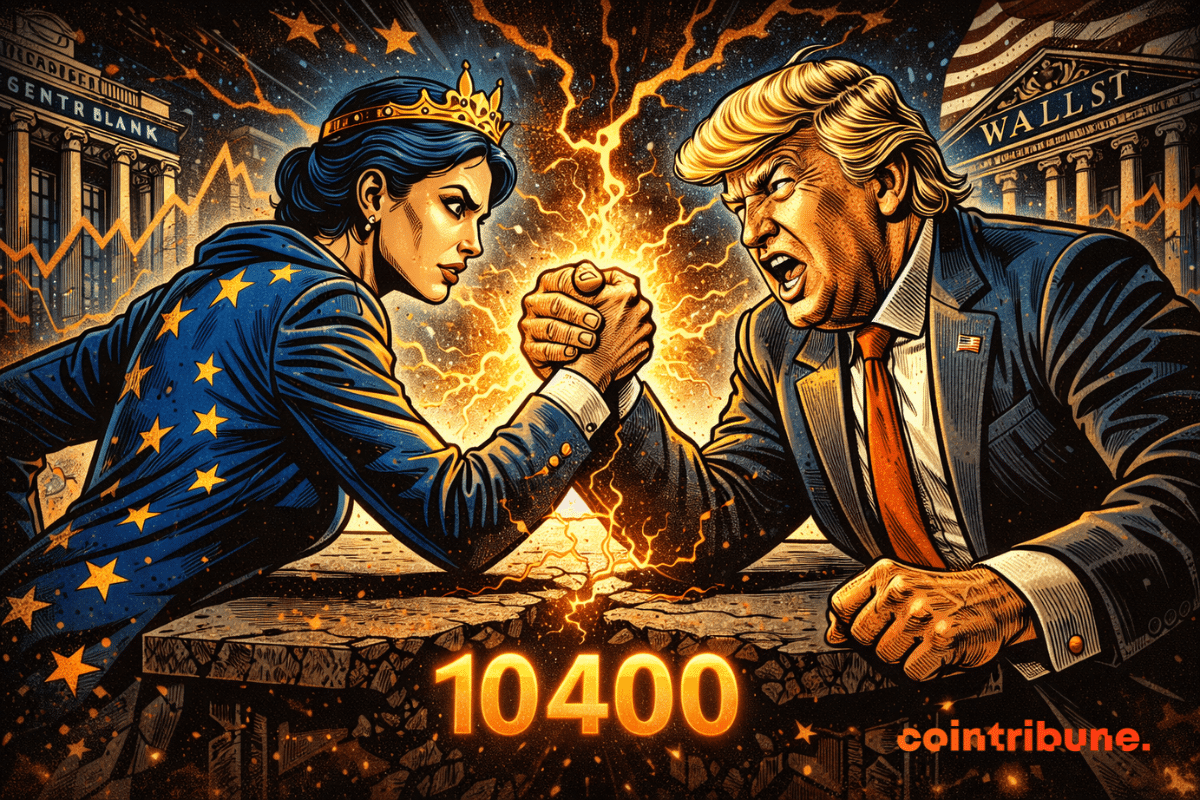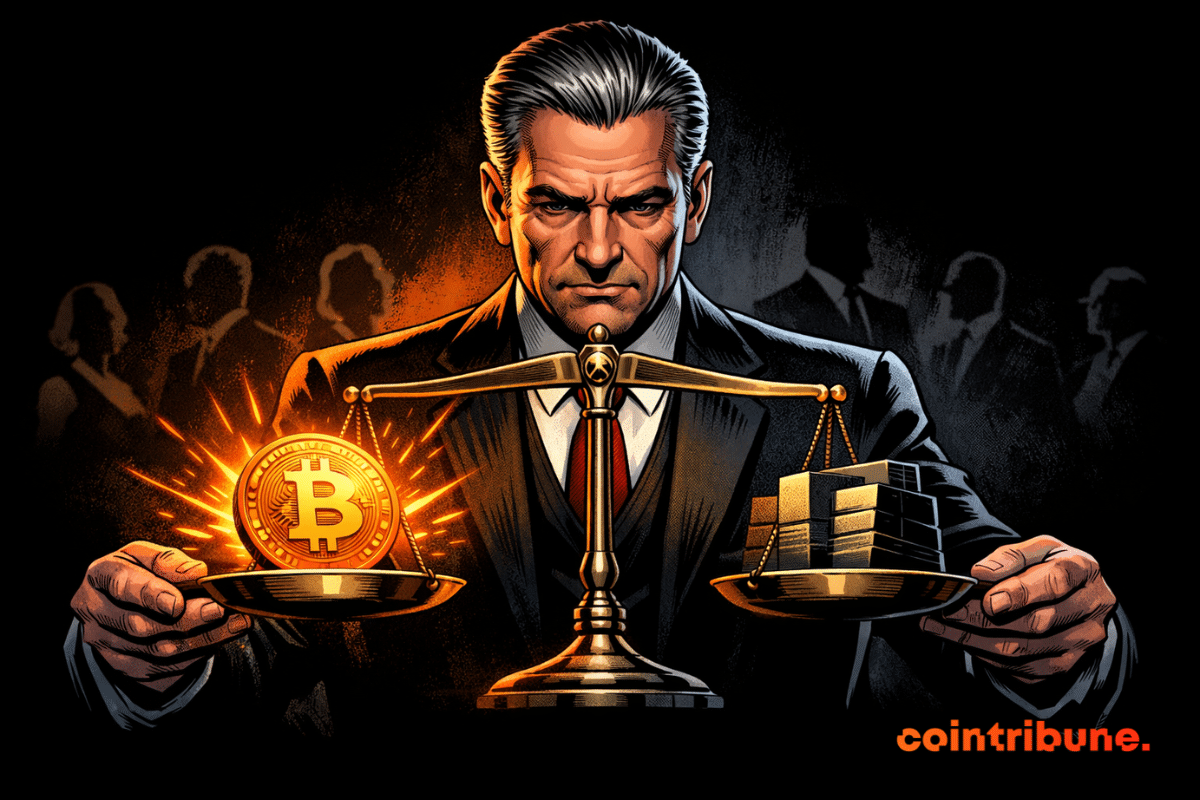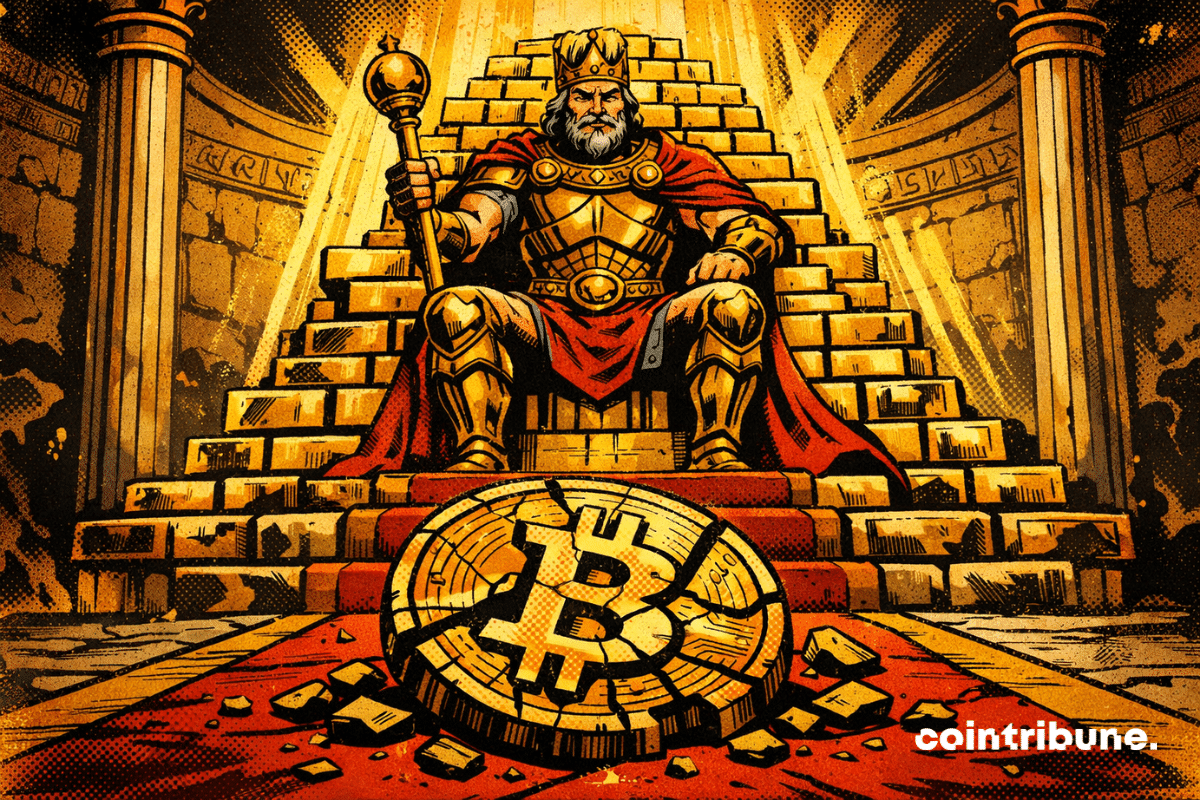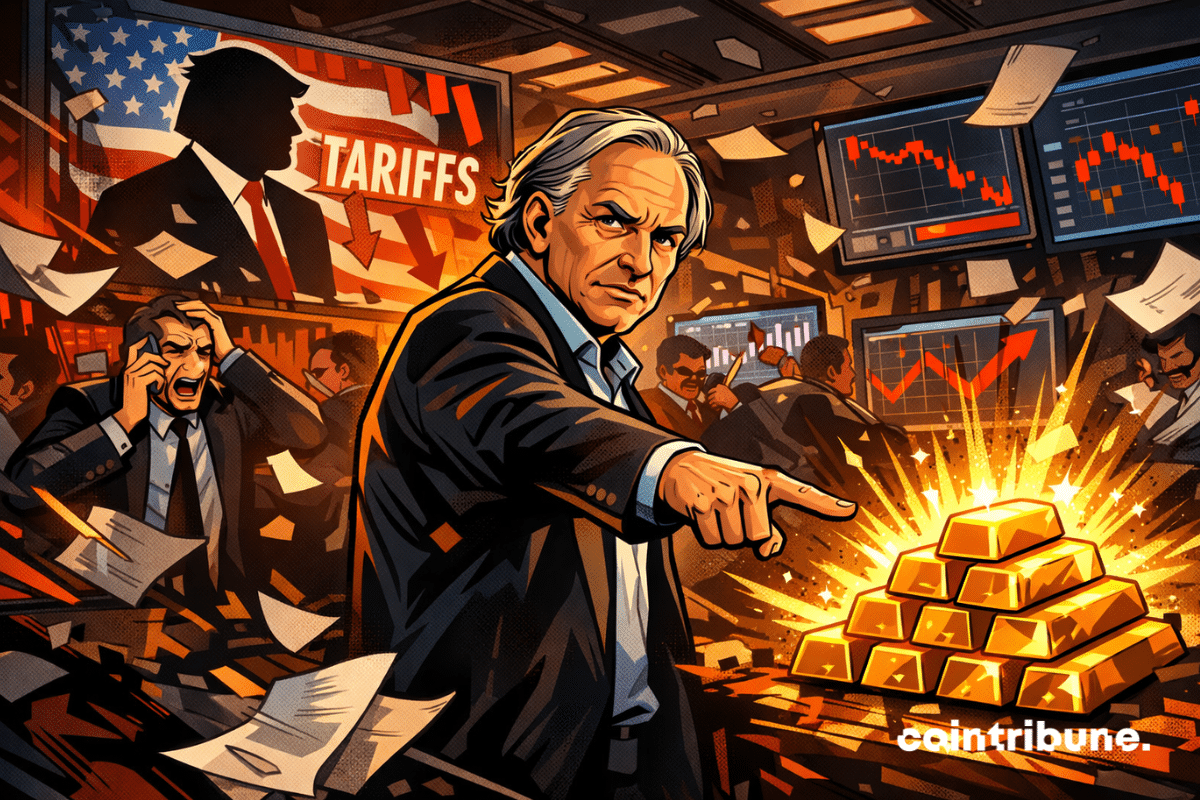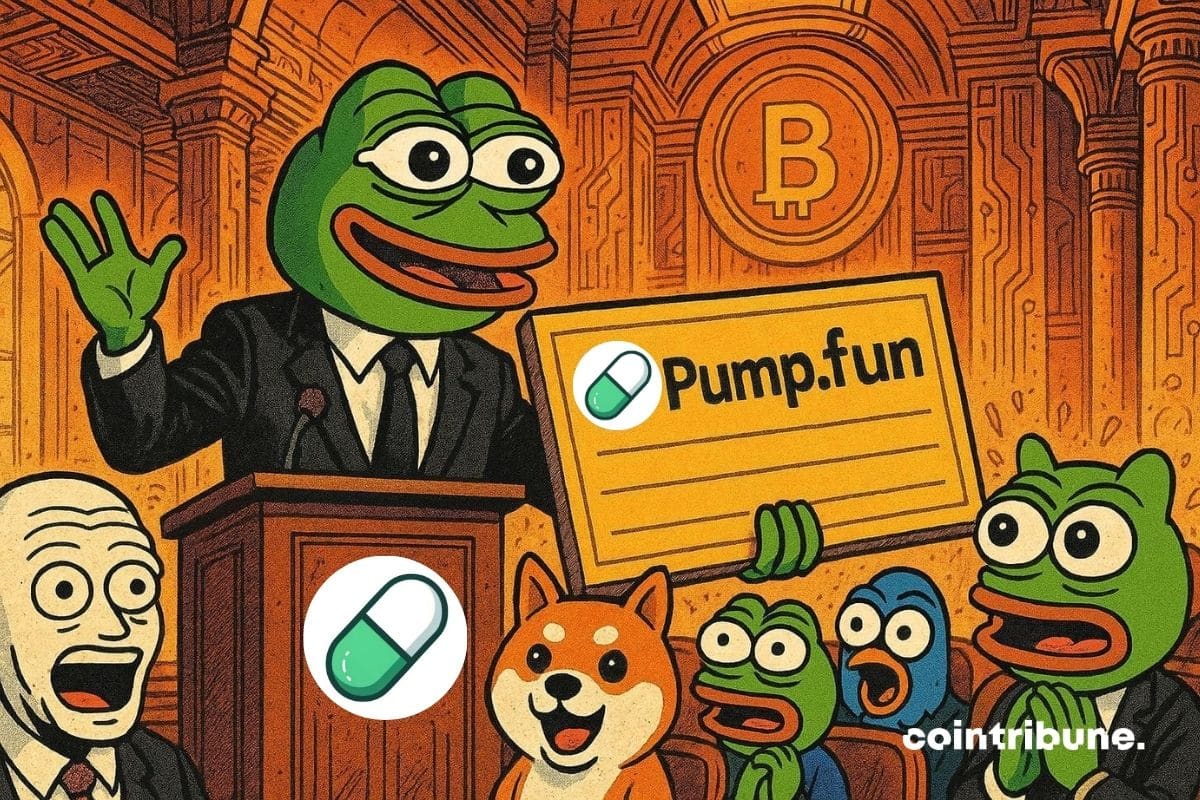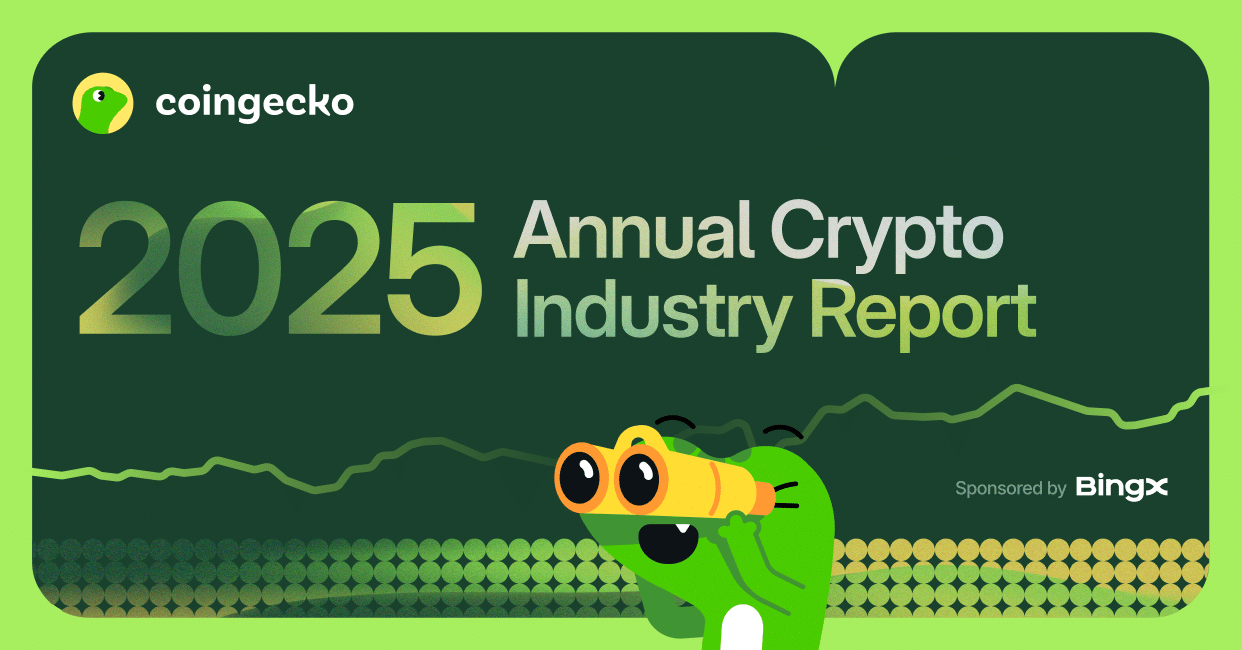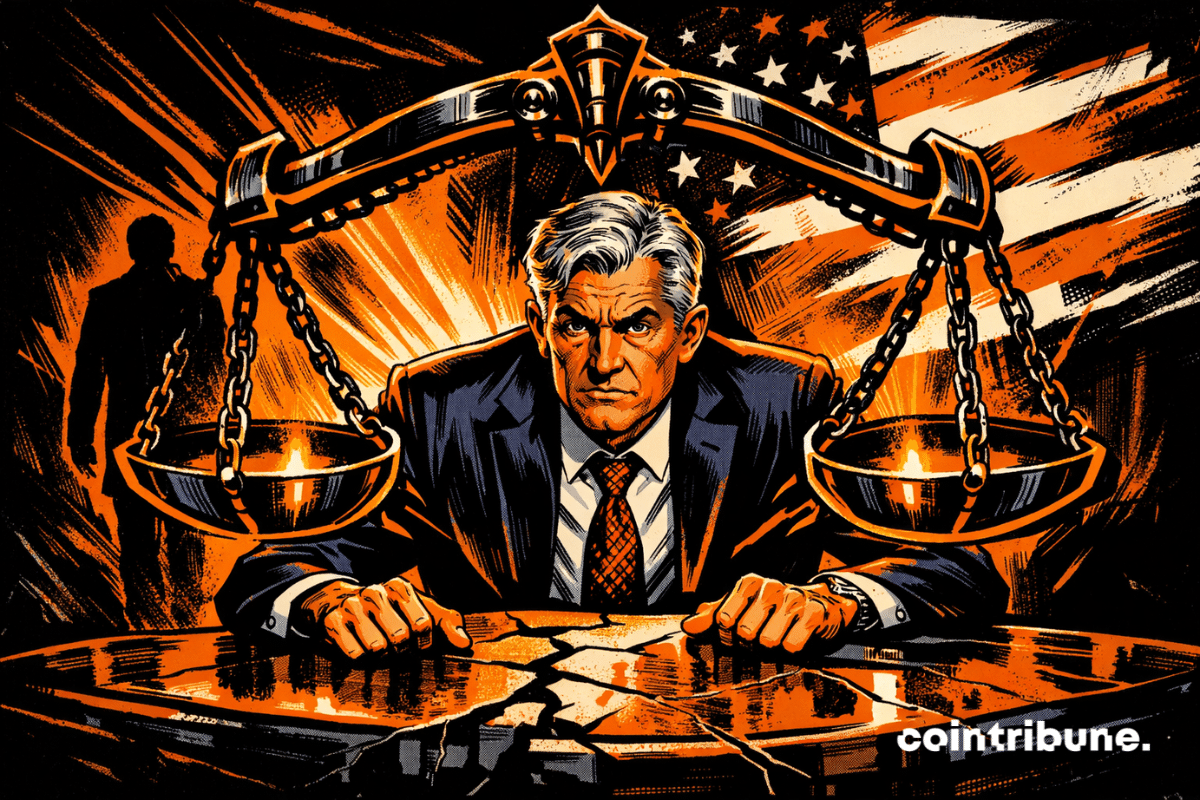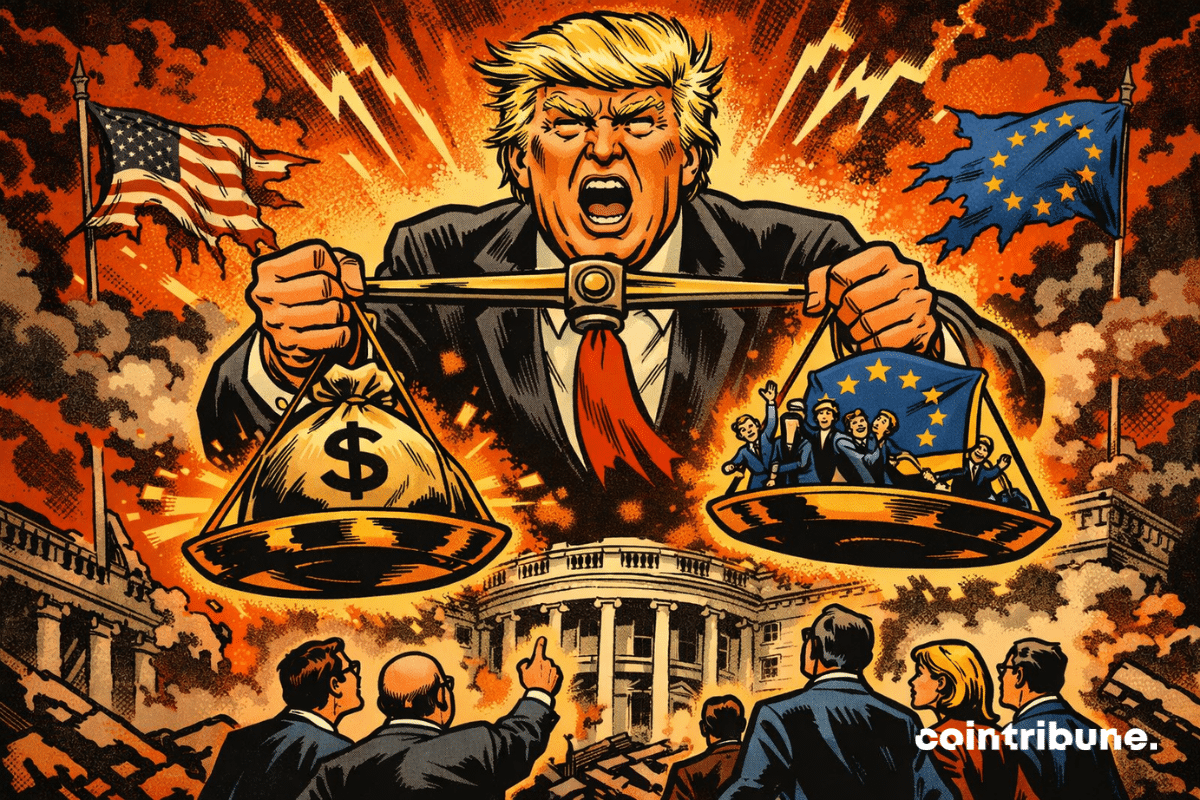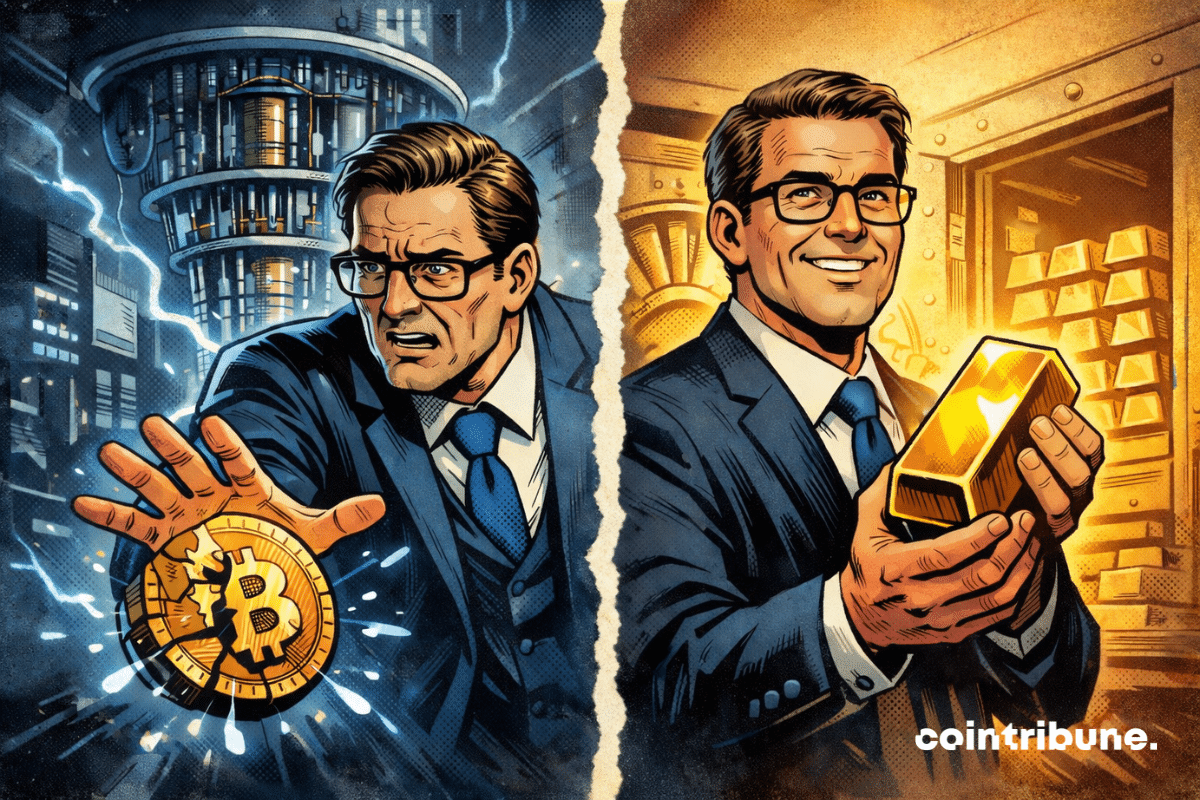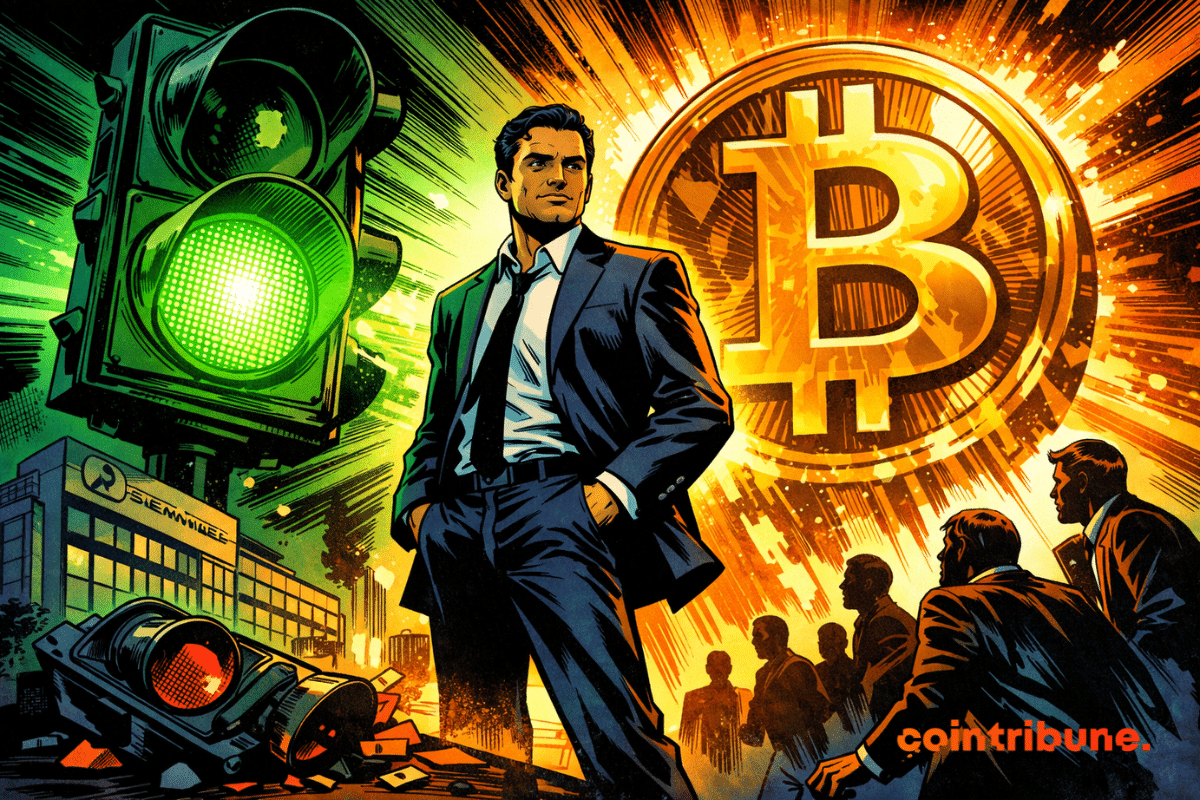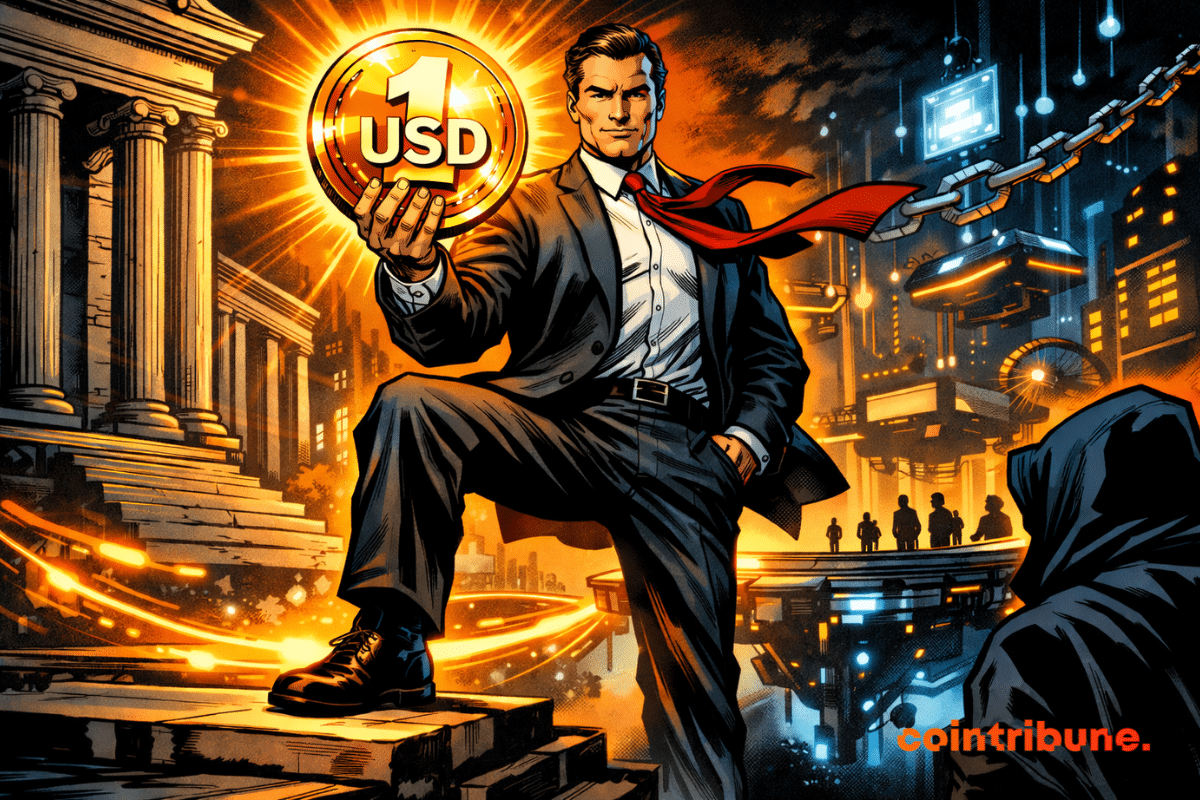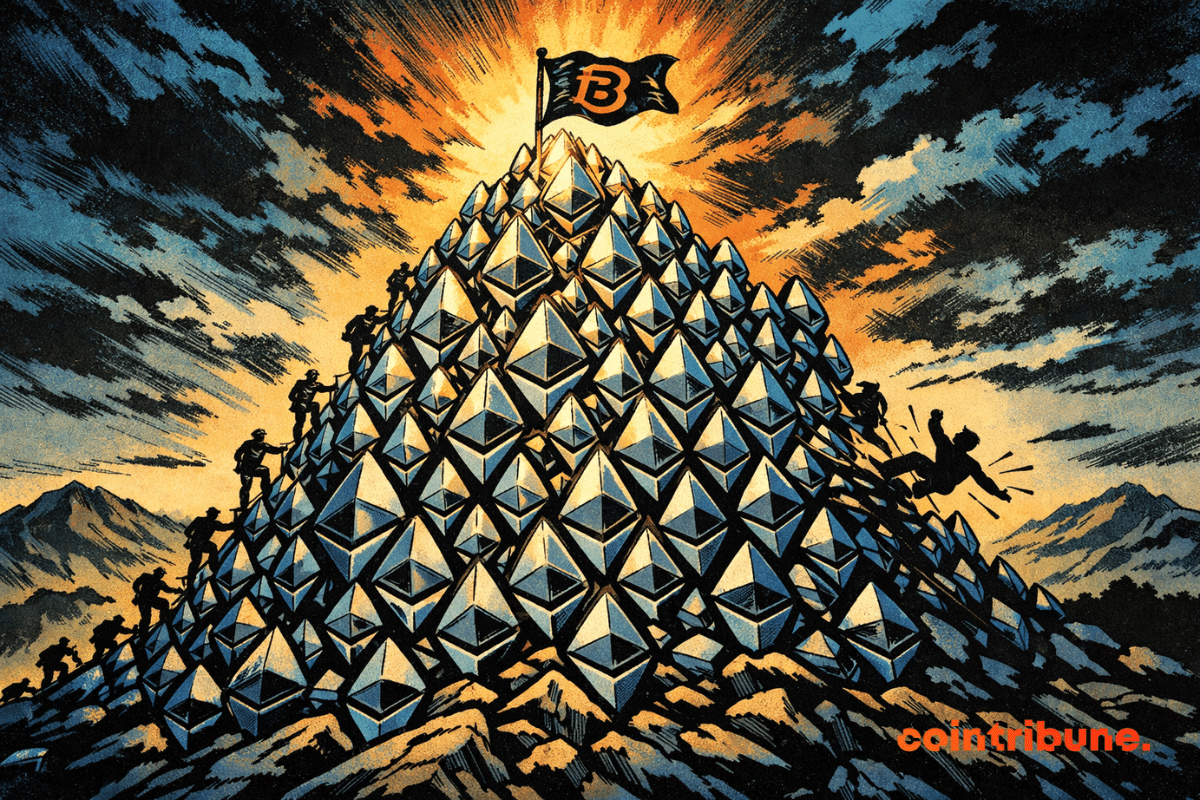The French make USB keys, the Americans make billions: Ledger crosses the Atlantic, hoping Wall Street will finally open the vaults of global crypto-finance for it.
Finance News
Binance is bringing back tokenized equities after its 2021 debut, offering investors a bridge between traditional stocks and crypto markets.
Trump acts tough with Europe, but financiers of the Old Continent are sharpening their response: a stock market exodus that could make him swallow his "America First."
UBS Group AG is preparing a move that could bring crypto investing into its private banking business. Plans are taking shape to give selected high-net-worth clients access to digital assets, marking a shift in how the Swiss bank approaches the sector. The effort reflects growing client demand, ongoing regulatory review, and UBS’s wider push into blockchain-based finance.
Bankers were pretending to ignore crypto; now they dive in completely, renaming stablecoins as "infrastructures." PwC rejoices: the future is already tokenized.
Donald Trump accuses JPMorgan of having closed his accounts for political reasons and demands 5 billion dollars before the Florida courts. By directly targeting CEO Jamie Dimon, the president reignites the explosive debate on "debanking," a practice that fuels tensions between the political and financial spheres. This case questions the neutrality of major American banks. While Trump denounces ideological exclusion, JPMorgan, on its side, rejects any accusation of discrimination.
“To the moon,” that’s what bitcoin fans have wanted recently. But for now, the stars belong to another celestial body: gold. The yellow metal is flying over the markets, leaving the crypto-sphere waiting. While crypto traders watch for a signal, traditional investors turn to the ultimate safe haven. Gold shines,…
Ray Dalio warns of uncertainty in global markets as U.S. economic policies shift. He notes rising stress in currencies and sees gold as a reliable hedge.
Trump Airdrop: a crypto without cash, but with real benefits. We deliver all the details in this article.
Pump.fun, an iconic memecoin platform, surprises with Pump Fund: a 3 million dollar fund to support 12 startups. A bold transition from speculation to concrete investment. How could this strategic shift redefine the future of startups in the crypto ecosystem?
The crypto market faced a sharp correction in the final quarter of 2025, with total market capitalization plunging -23.7% to finish at $3.0 trillion. This marked a -10.4% Year-on-Year decline, crypto’s first annual downturn since 2022. While the quarter saw a brief all-time high of $4.4 trillion, a historic $19 billion liquidation event in October, sent prices slumping. Despite the price retreat, volatility pushed average daily trading volumes to a yearly high of $161.8 billion, while the stablecoin sector climbed +48.9% annually to hit a record $311.0 billion.
After a sharp drop, Bitcoin stabilizes and shows signs of recovery. Technical analysis and key scenarios for BTC.
Central bank digital currencies (CBDCs) are set to redefine the global financial system, and India proposes an ambitious project for the BRICS countries. By aiming to interconnect CBDCs, the initiative could simplify cross-border payments and strengthen the integration of sovereign digital currencies in international trade. This advance, led by India, could transform economic relations among BRICS members and redefine global geopolitical dynamics.
Kevin Hassett has withdrawn from consideration to lead the U.S. Fed, narrowing the field in a leadership contest increasingly shaped by political and legal pressure. President Donald Trump has made clear that he prefers Hassett to remain in his current White House role. And this stance has effectively removed him from contention and reshaped expectations around the Fed’s next chair.
Trump dreams of buying Greenland, taxes his allies, and awakens European pride: Brussels finally draws its economic bazooka, ready to fire faster than its diplomatic shadow.
Crypto markets appear to have moved past the leverage-driven stress seen in October, according to asset manager Grayscale. Recent research shared by the firm suggests derivatives activity has stabilized, supply pressure has eased, and market direction is now more closely tied to fundamentals and policy developments. As a result, price action may be better positioned to respond to upcoming regulatory and institutional shifts rather than past disruptions.
European regulators are increasing pressure on TikTok to strengthen how it verifies the age of its users. In response, the video platform is introducing a new system designed to better detect accounts run by children under 13 and remove them when necessary. According to reports, the rollout will begin in Europe in phases over the coming months, following a year of testing.
Wall Street panics its block: Jefferies trades bitcoin for bullion. Reason? Quantum computers, these little geniuses capable of cracking digital vaults.
Singapore, 16 January 2026 – Veera, a crypto-powered financial services platform focused on inclusion and usability, has raised a total of $10 million across its pre-seed and seed funding rounds to accelerate product development and to expand access to on-chain financial services globally.
Société Générale, through its subsidiary SG-Forge, and the SWIFT network have just taken a major step forward in integrating blockchain with traditional finance. Together, they executed the settlement of tokenized bonds using a stablecoin backed by the euro, the EUR CoinVertible. This unprecedented experiment, compliant with the European MiCA framework, marks a key milestone towards concrete interoperability between classic banking systems and cryptos.
Gold and silver closed 2025 at record highs, and that rally has accelerated into early 2026. A combination of strong demand, constrained supply, and rising political uncertainty is driving investors toward precious metals. New concerns about central bank independence have further intensified buying pressure.
Franklin Templeton has upgraded two traditional funds to work on blockchain platforms, letting institutions manage stablecoin reserves with familiar tools.
Investment firm VanEck expects the first quarter of 2026 to favor risk assets, citing clearer fiscal policy, steadier monetary signals, and renewed interest across several major investment themes. After years of uncertainty, improved visibility is shaping how investors position their portfolios heading into the new year.
The crypto market is entering a major zone of uncertainty. According to Wintermute, the historic four-year cycle, a pillar of investment strategies for over a decade, may have reached its limits. In a report published in early January, the market maker mentions a deep break in 2025, a strong signal that 2026 will not be a simple rebound, but a true test of resilience for an ecosystem undergoing redefinition.
When a former politician buys a medical company to stack Bitcoins, crypto becomes a politico-financial novel where health and speculation share the same digital core.
The crypto landscape is evolving rapidly. Once dominated by individuals, the market is now entering a phase where institutional giants take control. This change is no longer measured in trends, but in S-1 filings, MSCI indexes, and billions reallocated. According to the latest Binance Research report, the ecosystem is undergoing a structural transformation. Crypto no longer operates on the margins of traditional markets; it is now deeply rooted there.
A new piece is added to the crypto puzzle: World Liberty Financial, supported by Trump’s entourage, wants to turn the stablecoin USD1 into the locomotive of decentralized finance.
While Bitcoin naps, BitMine stacks ETH: one million staked, billions locked... and an ambition that would make even traditional finance blushing on Ethereum drip.
Barely relaunched in the United States, Polymarket is already facing local regulation. Tennessee has just issued an official injunction, accusing it of illegally offering contracts on sporting events. This decision, a first at the state level, could mark a turning point in the legal battle between blockchain platforms and state authorities. At the heart of the case is the legitimacy of predictive markets under federal regulation versus strict local gambling laws.
While crypto coughs, SharpLink stacks millions on Ethereum: from staking to restaking, the company turns its digital treasury into a well-oiled cash machine.
